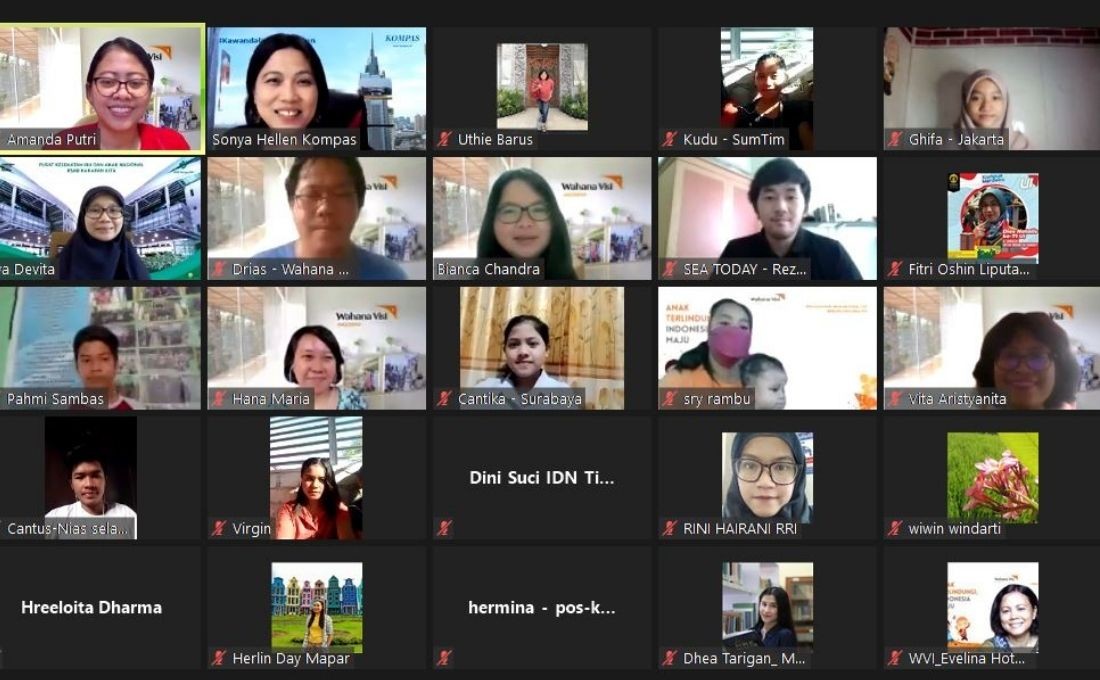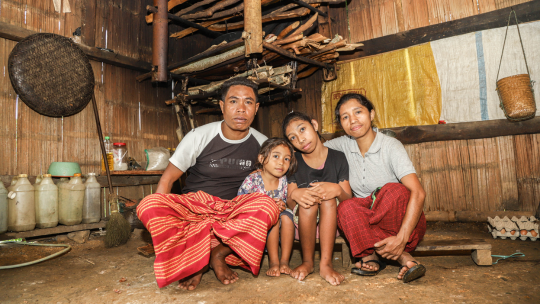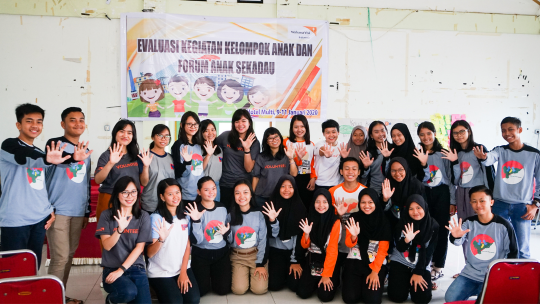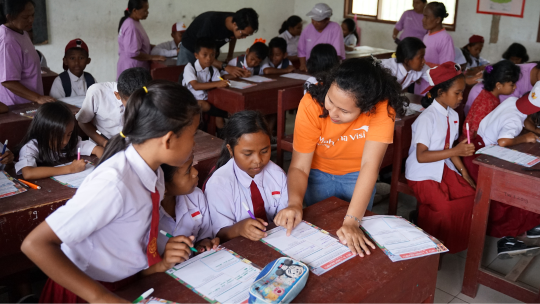Accelerate the Covid-19 Vaccination Process for Children, Parents Must Participate

The high number of Covid-19 of children makes the government accelerated the vaccination process for children aged 12-17. Meanwhile, this vaccination process does not always run smoothly. The limited stock of vaccines outside Java and Bali and parents' reluctance to allow their children to get the vaccine hampered the acceleration of the vaccination process.
These cases are real, as stated by Ghifa, a child from Jakarta. Ghifa, who had been vaccinated, found a friend who did not want to be vaccinated due to refusal from her parents.
“He has never had an injection since he was a child, maybe now he doesn't want to be vaccinated because there is such a belief. There used to be vaccinations at school but he didn't participate. That because his mother forbade it," said Ghifa at the virtual program Children Voices about Vaccines.
What was disclosed by Ghifa was also explained by Junito Drias, WVI Public Advocacy and Involvement Manager as the reality of the current conditions in Indonesia. According to him, from the total target of 2 million vaccinations for children, 800,000 vaccinations have been achieved and that is still the first dose of vaccine.
“This is a big homework how we secure our children. With this latest variant, it is enough to infect many people who have not been vaccinated. This means that many children are affected,” he said.
According to Drias, parents play a big role in the vaccination process. If parents understand the importance of being vaccinated, then the vaccination process can run faster. However, problems will arise when parents do not understand this.
Drias added, according to the results of a household survey conducted by WVI in the assisted areas, there was still 40 percent of parents who stated that they did not or did not want to be vaccinated.
"If it is passed down to children, how much? This means that adults determine the position of child vaccination. This is the role of the government to convince parents for their children or their families to be vaccinated,” explained Drias.
Virgin, a child from East Sumba added that the government felt it was necessary to conduct socialization related to vaccination of children and adults to villages.
"Because we in East Sumba have not had any socialization about vaccines, so many children and adults are afraid to be vaccinated," he said.
Reluctance and fear to be vaccinated should no longer exist. dr. Eva Devita, Sp. A(K), Head of the Child Protection Task Force of the Indonesian Pediatrician Association, said the Covid-19 vaccine for children has been proven safe and this has been supported by research, while the Covid-19 vaccine for children aged 3-11 is still under development. study.
“For the same dose as adults, the side effects are mild. If parents have immunized their children when they were young, and the children become fussy and do not feel well, it is okay, and that is normal. From this study, there were no harmful side effects, only mild side effects,” he explained.
Now, if the Covid-19 vaccination for children has been proven safe, why should it prohibit children from getting their rights?
Written by: Putri ianne Barus, Communications Officer Wahana Visi Indonesia



